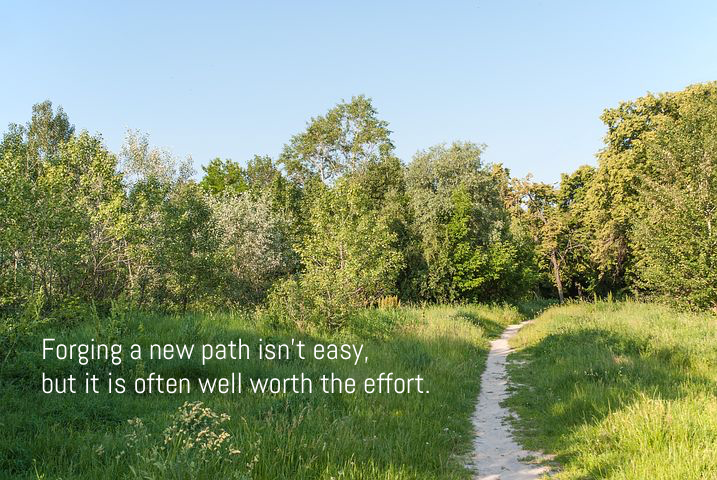One of the metaphors that I like to use to help clients conceptualize and consider change is that of an open field of tall grass.
When we engage in a repeated, reactive behavior, it is as if we walk the same path through a field from start to finish. Over time, that path becomes well worn, effortlessly locatable, and seemingly ‘easy’ to travel. I say ‘easy’, but this path of automatic reactions may well lead us, quite predictably, to the same undesirable endpoint. A family member behaves badly, and we jump on the path toward anxiety and stress. Our boss critiques our work, and we instantly travel toward anger and self-harming behaviors.
We can extend the metaphor further and consider this field as the landscape of our brains. Every time we repeat a behavior, we strengthen the neuron synapses (or connections) in our brain, forging, much like the path in the field, a well established and easily accessible neurological pathway.
But the brain, much like a field of overgrown grass, is not a fixed landscape. Just as we strengthen the connection each time we repeat a behavior, the opposite is also true. When we stop traveling a familiar path, or at the very least travel it less often, the trail becomes ill-defined, difficult to locate, and a little more uncomfortable to traverse.
What if, rather than traveling the familiar journey toward a negative outcome, we decide to do something different? Something more self-affirming, if you will. This new, healthier route will be unclear at first, almost impossible to see. And it may feel awkward, uncomfortable, or even frightening to forge this new path. But over time, the new trail will become as easily traveled as our old, now almost fully overgrown path used to be.
And because the brain, similar to the path in the field, is a ‘use it or lose it’ environment, the old, unattended patterns of behavior will weaken and eventually fade away. Maybe we will occasionally stumble upon them; maybe we will remember that they lead us off a proverbial cliff and turn swiftly around; and maybe, one day, we will be entirely unable to locate the negative trailheads of our past.
Until then, we forge on.

